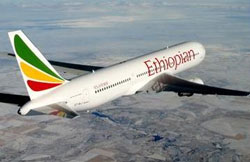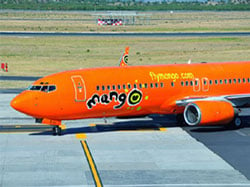Boeing forecasts US$4.5 trillion market for 34 000 new aircraft

"The world's aviation market is broader, deeper, and more diverse than we've ever seen it," said Randy Tinseth, vice president of Marketing, Boeing Commercial Aircraft. "It has proven to be resilient even during some very challenging years and is driving production rate increases across the board."
Airline traffic is forecast to grow at a 5% annual rate over the next two decades, with cargo traffic projected to grow at an annual rate of 5.2%. The single-aisle market, served by Boeing's Next-Generation 737 and the future 737 MAX, will continue its robust growth. Wide-bodies, such as Boeing's 747-8, 777 and 787 Dreamliner, will account for almost US$2.5 trillion worth of new aircraft deliveries with 40% of the demand for these long-range aircraft coming from Asian airlines.
| New Aircraft Deliveries: 2012-2031 | ||||
|---|---|---|---|---|
| Aircraft Type | Total Deliveries | Dollar Value | ||
| Single-aisle | 23,240 | US$2,030bn | ||
| Twin-aisle | 7,950 | US$2,080bn | ||
| Large | 790 | US$280bn | ||
| Regional jets | 2,020 | US$80bn |
Robust growth in China, India and other emerging markets is a major factor in the increased deliveries over the next 20 years. Low cost carriers, with their ability to stimulate traffic with low fares, are growing faster than the market as a whole. There is also a strong demand to replace older, less fuel-efficient aircraft. Replacement accounts for 41% of new deliveries in the forecast.
The market for new aircraft is set to become more geographically balanced in the next two decades. Asia-Pacific, including China, will continue to lead the way in total aircraft deliveries.
| New Aircraft Deliveries: 2012-2031 | |
|---|---|
| Region | Aircraft |
| Asia Pacific | 12,030 |
| Europe | 7,760 |
| North America | 7,290 |
| Latin America | 2,510 |
| Middle East | 2,370 |
| C.I.S. | 1,140 |
| Africa | 900 |
| World Total | 34,000 |
"It's incredible to see just how much air travel has changed since I took my first flight back in 1977," said Tinseth. "It has become critical to business and something we do for pleasure, to connect with family and friends. As the market continues to grow, especially in emerging economies, air travel will become affordable to even more people."

Freighter fleet forecast: 2012 to 2031
As the cargo market remains sluggish, Boeing has revised downward its projection for freighters over the next 20 years. Still, the world freighter fleet is projected to nearly double from 1740 aircraft today to 3200 at the end of the forecast period. Additions to the fleet will include 940 new-production freighters (market value of US$250bn) and 1820 aircraft converted from passenger models. Large (more than 88.2 tons capacity) freighters will account for 680 new-build aircraft. Medium (44.1 to 88.2 tons / 40 to 80 tonnes) freighters will total 260 aircraft. No new standard-body freighters (49.6 tons) will be required, but there will be 1120 standard-body conversions.
About the Boeing Current Market Outlook
Since the beginning of the jet age, Boeing has produced a long-term market outlook which was first shared publicly in the early 1960s. The CMO is the longest running complete worldwide jet forecast and is regarded as the most respected and comprehensive analysis of the aviation industry.
The report and a feature, which provides an interactive database of forecast numbers, can be found at www.boeing.com/cmo.


